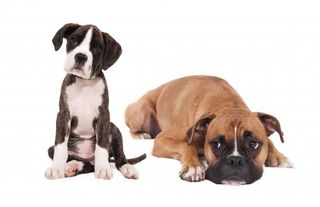Guilt
Dogs and Guilt: We Simply Don't Know
A widely-circulated new essay misleads readers.
Posted February 9, 2018
Existing data do not tell us that dogs do not feel guilt or shame: We simply don't know
I've been receiving a number of emails about an essay by William Brennan in The Atlantic called "Your Dog Feels No Shame: The myth of canine guilt." Because it can mislead readers into thinking that researchers have discovered that dogs don't feel guilt, here I offer a short corrective. It's important to note that Mr. Brennan is right on the mark concerning how "dog shaming" is wrong and really doesn't work, but that's another story.
Returning to dogs and guilt, to make the case that dogs don't feel guilt, Mr. Brennan cites the work of Dr. Alexandra Horowitz. He writes, "... according to Alexandra Horowitz, a dog-cognition expert at Barnard College, what we perceive as a dog’s guilty look is no sign of guilt at all." However, it may or may not be. As others and I have pointed out, there are persistent misrepresentations of a study she performed, the results of which were published in an essay titled "Disambiguating the 'guilty look': salient prompts to a familiar dog behaviour." In her research Horowitz focused on whether or not humans are capable of detecting guilt in dogs, not whether dogs actually feel guilt. She discovered that we are not very good at reading guilt, but this does not mean they can't or don't feel guilt.

In a previous post ("Do Dogs Really Feel Guilt or Shame? We Really Don't Know") I discussed Horowitz's research and also included a response from her about how her study has been misrepresented. (Also see "We Don't Know if Dogs Feel Guilt So Stop Saying They Don't.") She wrote:
"Spot on, on 'guilt.' Thanks so much for alerting me to and correcting the ubiquitous error about my study, some years back, which found that dogs showed more 'guilty look' when a person scolded or was about to scold them, not when the dog actually disobeyed the person's request not to eat a treat. Clearly what the results indicated was that the 'guilty look' did not most often arise when a dog was actually 'guilty.'"
"My study was decidedly NOT about whether dogs 'feel guilt' or not. (Indeed, I'd love to know...but this behavior didn't turn out to indicate yay or nay.) I would feel dreadful if people then thought the case was closed on dogs (not) feeling guilt, which is definitely not the case. Many secondary sources got this right, but it must require reading the study to appreciate exactly what I did."
There are other misrepresentations of what we actually know about guilt in dogs. For example, Dr. Susan Hazel, a veterinary scientist at the University of Adelaide, wrongly claims, "There have been a number of studies, and it’s pretty clear that dogs don’t feel or display guilt. It’s not the way their brains work." I fully understand that we don't expect popular media to include references, but as far as I can determine, and I've also asked other researchers, there are no studies that show that "dogs don't feel or display guilt." And, there have been no neuroimaging studies of dogs' brains that focus on guilt.
Along these lines, in an essay called "Do Dogs Really Feel Guilt?" there's a quote from Pascale Lemire, creator of the website dogshaming, in which she says, “I don’t think dogs actually feel shame ... I think they know how to placate us with this sad puppy-dog look that makes us think they’re ashamed of what they’ve done." These words are taken from an earlier essay, "Behaviorists: Dogs feel no shame despite the look," published in USA Today. I've emphasized the word "think" because that's all these claims are — personal opinions and thoughts about what might be.
It's important to get things right about whether or not dogs feel guilt
It's extremely important to get things right, and it's essential to pay attention to what researchers actually study and discover in their research. There's no reason why dogs shouldn't be able to feel guilt, as do other mammals, so let's wait and see what we learn in future work. Please see Nicholas Dodman's essay "Animals Have Emotions, But What About ‘Theory Of Mind’?" for more discussion on this point and "The Power of Play: Dogs Just Want to Have Fun" for more on dogs as "moral mutts" and their having a theory of mind.
It's also important to pay attention to what's called "citizen science" about the emotional lives of dogs. (See "Citizen Science as a New Tool in Dog Cognition Research," and also click here). Stories can and do lead to rigorous research projects, and stories abound about guilt in dogs.
If we discover dogs do not feel guilt or shame, well and good. But to claim we know this already closes the door on much needed and very exciting research.
Please stay tuned to discussions of research on the fascinating cognitive, emotional, and moral lives of dogs and other animals. While we know quite a lot, there still is so much to learn. What an exciting time it is to learn more about who dogs are and what they feel.


